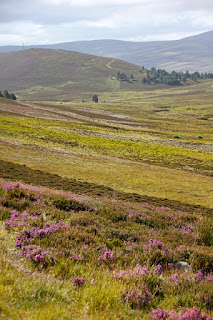Circle of Song: Jayme Stone's Folklife and Macmath: The Silent Page
How does get passed along? Consider what two groups of musicians have done with very different songs of heritage: they have taken the music into their own lives as artists. By doing that they make the music, the stories it tells, and the lives of those who created it, real and inviting to listeners in the present. Music as time travel and as stories for the future, if you will.
Jayme Stone is an award winning banjo player, producer, and composer. In the project Jayme Stone’s Folklife, he joins up with singer and accordion player Moira Smiley, fiddler Sumala Jackson, and bassist Joe Phillips to explore, imagine, and at times reinvent music from across the landscape of American song. Rather than consider early field recordings and other sources on which they drew only as snapshots from generations past, Stone chose to look at them, he says, as heirloom seeds.
“I’m not collector,” Stone says, “Nor am I particularly nostalgic. I revel in the act of discovery.” With that in mind he brought Phillips, Smiley, and Jackson, three equally adventurous musical friends, together “to help blow the dust off these carefully chosen songs, uncover their hidden histories, and till fresh soil to see what might spring forth from these sturdy seeds.”
Quite a lot does. There are ten tracks on Jayme Stone’s Folklife,, drawn from seedbeds in Caribbean islands and in Mississippi, from the rural church tradition of sacred harp singing to the low down rhythms of a backwoods dance hall. Story, harmony, powerful musicianship with both instruments and voices, and the sheer energy, creativity, and joy of collaboration are what connect this diverse group of songs.
Every cut is worth exploring more than once. Listen out especially for Buttermilk, with guests Dom Flemons and Ron Miles, and Stone’s work on a prepared banjo (that’s one with objects added to the strings, making for a unique sound -- it’s still a banjo, but listen...). You will also want to hear what Moira Smiley does with the lead voice part on There’s More Love Somewhere. All four join on the singing for Hallelujah, along with guests Felicity Williams and Denzel Sinclaire. You may find yourself singing along -- and dancing along -- to these songs, which may feel familiar even if you’ve not heard them -- or not heard them like this -- before. Jayme Stone wishes that for you. “These songs are yours too,” he says. “Sing them, plant them in your yard, graft themto your own musical tree. Keep them watered and even if they lie fallow for a spell, they’ll revive. Folk songs are perennials.”
That is an idea the musicians who joined up as The Macmath Collective understand. It is what they’ve done with their recording Macmath: The Silent Page.
It began with two handwritten books. Perhaps you’ve heard songs referred to as Child ballads? Even if you’ve not you’ve no doubt heard some of the songs themselves, or sung them: Barbara Allen, Matty Groves, The Cherry Tree Carol, and dozens of others have entered the folk and popular song landscape, been adapted, and revised and handed on because Francis James Child, a professor at Harvard, published the books called The English and Scottish Popular Ballads in several volumes between 1882 and 1898. William Macmath, from Galloway in southwestern Scotland, loved music and the stories told through it. He was one of the people Child relied on to gather songs for him. Artist Edward Hornel (one oof the group of painters known as the Glasgow Boys ) bought a collection of papers which included those two handwritten books, and they ended up the collection at his home in southwestern Scotland. More than a century later, songwriter and community choir leader Alison Burns came across them, and in her words “began to think about ways to sing this paper collection back to life.”
Most of the songs and stories in the books were told directly to William Macmath by people who knew them and lived them in southwestern Scotland. It seemed natural then to turn to musicians in living and working in that region today with the idea. Wendy Stewart, one of Scotland’s top harp players, joined on, as did flute and fiddle player Claire Mann, who has won many All Ireland titles and been a principal flute tutor on the Scottish Music course at the Royal Conservatoire of Scotland. Guitarist and bouzouki player Aaron Jones, who has toured the world with artists including Old Blind Dogs and Kate Rusby, and singer Robyn Stapleton, who was named Scotland’s Young Traditional Musician of the Year by BBC Radio Scotland in 2014, were in. So were Jamie McClennan, who brought his fiddle and guitar talents to Scotland from New Zealand more than ten years ago, and Emily Smith, who is five albums into a solo career which includes awards for her songwriting and singing, among them twice being named as Scots Singer of the year by BBC Radio Scotland.
That’s an impressive group, yes. But what does the recording sound like? “We decided early on that our goal was to make a collection of singable songs with great arrangements,” Burns says. To that end, they sometimes tweaked some of the lines to help them fit with the music, and on occasion found local tunes or wrote new melodies where no music for a song existed.
There are thirteen songs on the recording. You may find song lyrics, story lines, perhaps melodies or phrases of music that will seem familiar, but you’ve not heard them quite like this before. There are love songs with happy endings and with not, fantastical tales, song which evoke the natural landscape and the world of fairies, a nonsense rhyme or two, stories of unusual people, advice on marriage, all framed in tales that people enjoyed singing and handing on through hundreds of years.
“We’ve chosen songs that were unusual, rare, or unique to the collection,” Burns points out, adding that while some of the stories may be familiar or you may have heard other versions of the songs, “the reason that you do may well be down to the work of William Macmath in recording and sending them on to Child for publication.”
In the hands and voices of these musicians the songs are no museum pieces, though. Source material, rather, and stories which on their own reflect and share the lively tale telling and singing that has taken place in southwestern Scotland through the centuries. Listen out especially for the lively tale of the cabin by in The Golden Vanitee and the story of love challenged by obstacles real and fantastical in The Queen of the Fairies. The joy of collaboration in music comes through in the singing and playing of the Macmath Collective on every track.
Singing songs back to life, reaching across time to share thoughts, ideas, celebrations, and stories: these are at the heart of the work on Macmath: The Silent Page and on Jayme Stone’s Folklife.
You may also wish to see
Emily Smith: Echoes
Music for Reflection with a song from Robyn Stapleton
Geography of Hope with a song by Moira Smiley
Carrie Newcomer’s album The Beautiful Not Yet which Jayme Stone produced and on which Moira Smiley sings harmony
-->Your support for Music Road is welcome and needed. If you are able to chip in, here is a way to do that, through PayPal. Note that you do not have to have a PayPal account to do this. Thank you.
Labels: american folk music, americana, americana music, child ballads, dumfries and galloway, emily smith, jamie mcclennan, jayme stone, moira smiley, robyn stapelton, scotland, Scottish music





















